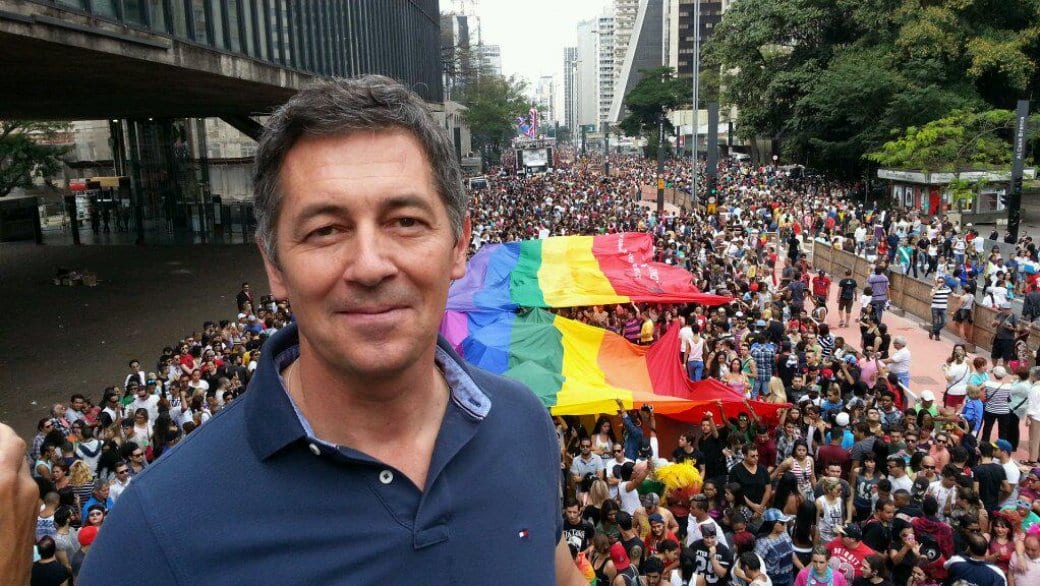Canada’s federal government has decided against creating a special diplomat position for LGBT issues abroad.
In a June 17 statement, a spokesperson for Foreign Affairs Minister Stéphane Dion said the government has decided against creating such a position.
“We believe a whole-of-government approach is the best way to deliver equality for LGBTI persons and respect everywhere,” said spokesperson Joseph Pickerill. “Canada believes the human rights of all persons to be universal and indivisible, and these include the human rights of LGBTI persons.”
Pickerill said the government’s new Office of Human Rights, Freedom and Inclusion “explicitly tasks” every consulate, embassy and high commission to advocate for LGBT concerns, alongside other issues like religious freedom.
But Randy Berry, the US special envoy for the human rights of LGBTI persons, tells Daily Xtra that Canada can still leverage its immigrant and business communities to improve life for gender and sexual minorities worldwide.
“Canada’s always been a leader on this issue,” Berry says.
Berry was in Ottawa in early June for a Dignity Initiative conference, which assessed what Canadian governments and civil-society groups are doing for queer people abroad. He says he noticed how Canadians with family ties to countries like Jamaica or Ukraine are supporting activists back home.
“Diaspora communities often form a perfectly natural bridge [. . .] because they are committed to life, to progress, to justice in both countries,” he says. “I don’t think we’ve engaged in those structures at least in the US, as much as I think we could.”
His visit came six months after the NDP formally asked the Liberal government to create a similar position to “return to Canada’s traditional role as an international defender of diversity and equal rights.”
Berry wouldn’t weigh in on whether Canada should have a similar envoy. But ever since his term started in April 2015, Berry believes he’s made more headway with the 43 countries he’s reached out to because of his “groundbreaking” distinct role.
“This is the first time we’re having a conversation about LGBTI inclusivity and equality as its own issue, and not one among a list of items that are covered when we have a chance to talk with senior officials,” he says.
Berry adds that businesses can play a key role in pushing for queer rights, noting that the Royal Bank of Canada is part of a US-led fund for LGBT groups abroad.
He says other companies have pushed governments to drop bans on LGBT people entering their country, because it’s a hurdle to multinationals sending their staff abroad. Companies have raised this in general negotiations on tariffs and trade barriers.
“They can add a discussion that is focused around economic development and the positive investment climate that, at its heart, is actually non-political [. . .] it’s just based in reality about how you benefit your economy and employ people,” he says. “Canadian corporations have been very progressive on these issues.”
And while governments in Russia and Uganda have accused western countries of importing LGBT identities from abroad, Barry says diplomacy can work around such concerns. He often highlights progress in countries like Taiwan and Vietnam, and frames the issue through equality.
“We come to this understanding that we are talking about a fundamental aspect of identity — not behaviour, identity,” he says. “If you accept that premise, then you can draw the linkage very clearly to acts of violence, acts of discrimination, against this community being on the same exact basis as those committed on the basis of gender or race or ethnicity.”
Berry admits there’s a “steep curve to help people understand” that framing, but says it’s important diplomats stick to respect and a “constructive” attitude.
“Where people tend not to understand, they simply fill in those gaps of knowledge with misinformation,” he says. “Constructive conversations are entirely possible, including in some of the most difficult environments.”
He also thinks Canada and the US should embrace the various indigenous queer identities, which are known collectively as two-spirited people.
“We need to reclaim that tradition,” he says. “We have a long way to go in terms of honouring that, of understanding [and] making sure that our embrace of diversity is consistent, and true across those lines.”

 Why you can trust Xtra
Why you can trust Xtra


